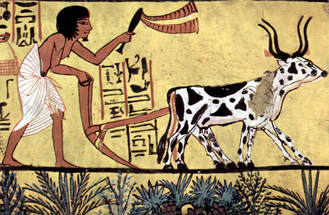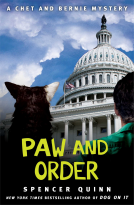I have been reading historical fiction for decades, and one can certainly call some of the classic novels of the literary canon historical fiction, though it is rarely done. HIstorical fiction, as a genre today, is prolific but often denigrated. And yet, there is deep value in a good historical fiction book. I’ve found that these stories are typically well researched and bring a stunningly realistic view into the everyday lives of people during a particular period of time.
Writing such good fiction requires strong research skills, certainly. That is essential. What is really tricky, though, is balancing the tremendous amount of research with a flowing, easily accessible writing skill. After having read thousands of these books, I’ve encountered two major pitfalls of historical fiction writers. One is that excellent research doesn’t always translate into an easily readable writing style. These writers may be great researchers (and are often scholars), but they, unfortunately have an awkward writing style and focus too much on setting a scene or period and tend to throw into too much detail, sacrificing character development. I’ve often picked up one of these books based on the period or event it covers, and perhaps impressed by the author’s credentials, only to find that the book is simply unreadable. The second major pitfall is when a writer brings 21st century sensibilities into another period of time, and it obviously doesn’t fit. Please don’t get me wrong on this: I do enjoy writers who explore societal conditions and prejudices, and I like characters who defy the conventions of the time. In every generation, there have always been iconoclastic individuals. There is, however, a dismaying tendency for some historical fiction writers to impart their main characters with 21st century phrasing, beliefs and actions. These books simply don’t ring true to the reader. I have to say that sometimes, if the writing is purely delightful, I can suspend that problem, but these are never my favorite books or writers.
Good news, though. Right now, there is a wonderful abundance of excellent historical fiction writers who shun those pitfalls and give the reader not only an immensely pleasurable reading experience but an amazing education on the time period and events covered in the book. This sort of education has never been found in the classroom or by reading textbooks. We readers depend on these writers to pull us into a new world that actually existed and is part of our history. I commend these writers! I’ve learned so much from them. You will find many of these writers in my reviews.
Category: Authors
Historical fiction on women
Historical fiction, when well done, can give insights and information that are easily understood and truly educational in the most engaging manner. Imagine your high school history teacher actually being fascinating, and your history lessons not just centered on memorizing events and people but finding out about the people from history.
For women and minorities, historical fiction has been a way to tell their stories, those stories that have mostly been ignored in the history textbooks. At the very least, it fleshes out the history that we learn in school. I particularly enjoy mysteries, so historical mysteries are a special interest of mine. I don’t enjoy mysteries that don’t teach me something, so placing a mystery in a time period is a perfect mode of teaching.
There is a wonderful website called Women in World History which has a special section on Historical Mysteries with Women Sleuths. This is a fabulous find, as it lists books by geographic region as well as historical time period.
History becomes real when you read fictional stories that are well researched and authentic in their details. And we know that racism and xenophobia can be lessened and even eliminated when one becomes acquainted with the stranger. That is best done in person or through media, but it can also be done through reading. Over the last few decades, teachers have encouraged students to read literature from other countries and books that give perspectives of different cultures and ethnicities. This helps tremendously with empathy and understanding of persons and cultures different from one’s own.
Everyone should read a book about something quite different from their own experiences. Sometimes, I have to push myself to read outside my comfort zone. I’ve always been rewarded, though. One of my all time favorite books is now Chimamanda Nzogi Adichie’s stunning Americanah. I had never read or even thought much about the many Nigerians who are part of the US. This book explored many issues of immigrants and the clash of living in two worlds and cultures. It is truly an unforgettable story.
I do read quite a bit of nonfiction, and it is invaluable for learning about history. There is no substitute, in fact. Historical fiction, however, is a perfect addition. It’s entertaining in a way that nonfiction can rarely be, and it provides a much deeper look at the day to day lives and issues for a particular place, person, or event. So, supplement your history with one of the excellent historical fiction books available. For learning about another culture or ethnicity, or the hidden or obscured histories of women or marginalized peoples, historical fiction is a treasure.
Women’s National Book Association: WNBA Awards
WNBA Award winners have been announced. This year, the centennial year of the organization, two women recipients were chosen. The WNBA has selected the current librarian of Congress, Dr. Carla Hayden; and novelist, poet, and bookstore owner Louise Erdrich.
The WNBA Award is presented every other year to “a living American woman who derives part or all of her income from books and allied arts, and who has done meritorious work in the world of books beyond the duties or responsibilities of her profession or occupation.” The award has been presented continuously since 1940, originally every year and since the mid-1970s, biennially.
This year, in commemoration of the WBNA’s Centennial, the organization is honoring two women who represent the wide spectrum of women in the book world—one woman involved in the business or dissemination of books and one in the creation of them.
Hayden was selected due to her commitment to making libraries relevant to the world, responsive to the trends of their times, and vital parts of the communities they serve. Erdrich was selected due to her dedication to adding to the complex narrative of American culture, to giving voice to indigenous peoples, and to supporting the importance of independent bookstores, through her own store, Birchbark.
The history and recipients of the WNBA Award will be celebrated and recognized at the WNBA’s Centennial Celebration to take place on Saturday, October 28th in New York City at Pen + Brush.
Press Release Announcing 2017 Winners
July — reading in the summertime
July already, and I’m finding so many new books to read! But the garden and beautiful outdoors are very tempting, as well.
Here in the Nashville area, things are heating up to the point where deck reading is no longer an option.
I’m still getting through the Great Group Reads selections — wait until you see the 2014 list of recommendations for book discussion groups! This list will be full of great choices!
Also sprinkled around my house are some winners and some just plain good reads in various genres.
First up – another entry from the only animal-perspective series I like: Spencer Quinn’s Bernie and Chet series. The newest is Paw and Order by Spencer Quinn. Could anything be more charming that the rough but likable Bernie and his furry companion and hotshot Chet? Quinn has defined his Arizona landscape very well and branched out with his last book to the bayous of Louisiana. This time, Bernie and Chet head to DC – and this new environment adds considerable depth and excitement to their adventures. One of the best! Highly recommended.



